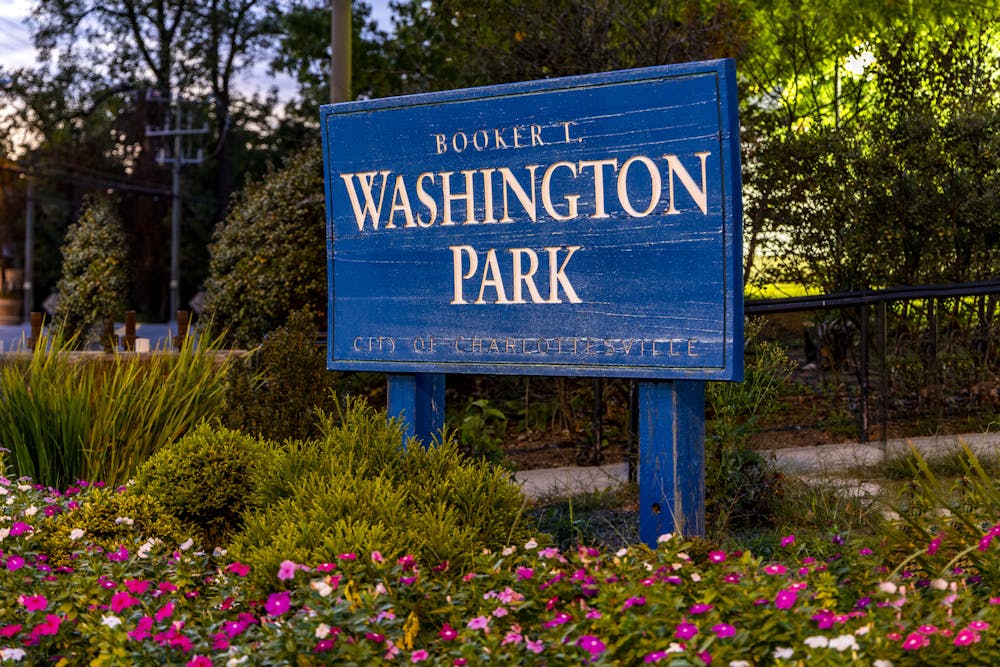Cultivate Charlottesville, a local nonprofit organization centered around food equity, has gained support from both City Council and local community members for its proposed urban agriculture project in Booker T. Washington Park. If approved by City Council, the project would convert 10,000 square feet of public land in the 10th and Page neighborhood to public gardens for growing produce for underserved communities.
Cultivate Charlottesville’s mission centers around building a more just food system, with a special focus on addressing the ways racism affects food justice in minority communities. The project in Booker T. Washington Park is at the center of Cultivate Charlottesville’s “Power to Grow” campaign, which aims to educate community members about racial inequities in Charlottesville and center Black voices in creating sustainable urban agriculture within underserved parts of the city.
Aleen Carey, co-executive director of Cultivate Charlottesville, said that the campaign is built on the understanding that community involvement, communication and intersectional awareness are key to achieving food justice.
“It's all about being a curious citizen of Charlottesville, being a lifelong learner and also being focused in racial equity, and what that looks like with food equity,” Carey said. “What's the transportation look like? What does community wealth building look like in your area? What does affordable housing look like? What does climate justice look like? A lot of times people don't make that connection.”
The Charlottesville Parks and Recreation Department is currently considering the Power to Grow campaign, which will not be formally voted on by City Council until the Department submits their strategic plan for local parks and public spaces in late 2024-25. However, during a City Council hearing Sept. 19, several council members — including Leah Puryear and Michael Payne — expressed support for the project.
Booker T. Washington park was selected for the project not only due to its proximity to underserved Black neighborhoods, but also because of its history. The park was donated by Paul Goodloe McIntire in 1926 along with the larger McIntire Park.
Booker T. Washington park — known as “Washington Park” until 2001 — was originally designated as a “Blacks Only” park. It has since remained an important gathering place for Charlottesville’s Black community long after the end of segregation, housing family and community gatherings, as well as events such as the Chihamba African-American Cultural Arts Ceremony.
Carey said that wider community use of the park needs to be accompanied by centering Black voices and educating Charlottesville residents on the history and cultural significance of Black citizens in the area.
“I think a larger piece of the project, or what could happen at Booker T. Washington Park, is more of a reclamation of that space for Black families,” Carey said. “I think that would just involve additional nonprofits and organizations and the City putting in the work to make that space feel like home again.”
Per Cultivate Charlottesville’s website, rising gentrification in Charlottesville has made Black community members feel isolated from the park. Since the 1990s, Charlottesville Parks and Recreation has formalized programming for the park and began requiring permits for events and gatherings, which some community members have cited as a deterrent from using the park.
One organization working with Cultivate Charlottesville on the Booker T. Washington Park project is the Sustainable Food Collaborative, a University-based initiative formed in 2016 as part of the 2016-2020 U.Va. Sustainability Plan. The Collaborative recently provided Cultivate Charlottesville with an $8,000 grant towards its Power to Grow campaign.
Fourth-year Architecture student Mallie Bowerman has worked as an intern for the Collaborative and directly participated in compiling data about Booker T. Washington Park for Cultivate Charlottesville. According to Bowerman, students have special obligations to the community because of how it supports their time at the University.
“I think it's really important for all students to connect with the Charlottesville community in whatever way that they can because we rely on the resources and labor of the Charlottesville community just to exist at this University,” Bowerman said. “Forming reciprocal relationships with community members, community residents and community organizations is really important to help repair the harm that's been done.”
The Booker T. Washington project is located close to several popular off-Grounds student residences, including Cambridge Square, Woodrow and Oxford Hill Apartments. Carey said this proximity means that students have all the more reason to educate themselves on the park’s history and get involved in its future.
“We always talk about town and gown and how there can be that separation,” Carey said. “But if you're gonna live in a place for four years, or maybe more — [it’s important] that you’re leaving that place knowing something about it, having felt like you were a part of it for that time in a positively contributing way.”
Parks and Recreation told Charlottesville Tomorrow they anticipate a final plan will be ready for review by late 2024 or early 2025. Work on a garden will not commence until City Council approves the plan.







